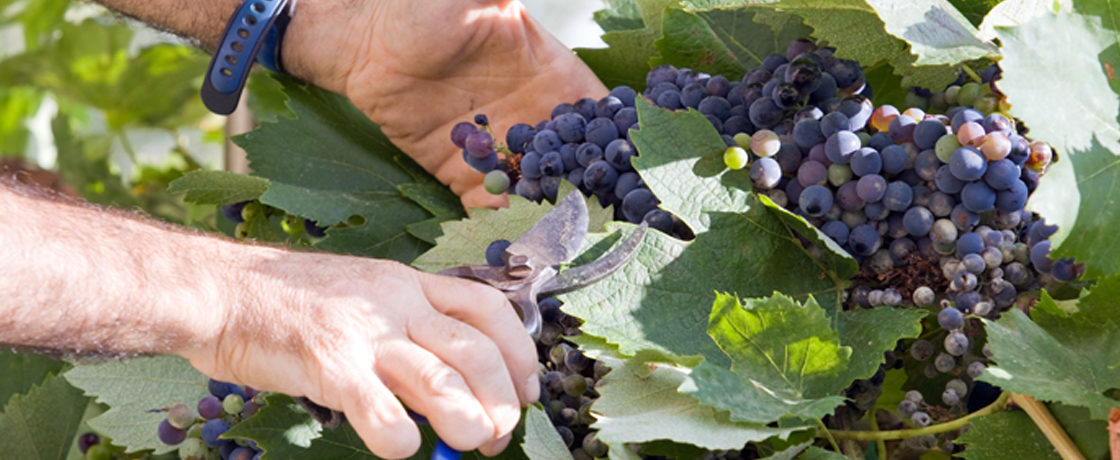Abiding in the Vine
Abiding in the Vine
John 15:1-17
John uses the analogy of the vine to display the union of believers with Christ. Apart from Him they can do nothing. This union, originating in Christ’s initiative and sealed by His death on their behalf, is completed by the believers’ responsive love and obedience, and is the essence of Christianity.
Abiding Produces Fruit
Fruit is many things in Scripture, but number one, it is the virtues of Christ-like character, and Christ-likeness.
A believer who is like Christ is a fruit-bearing believer. It is a life that is patterned after Jesus Christ. This is exactly what Paul is driving at in Galatians 5:22, when he lists the fruits of Spirit. All of those, without exception, were characteristics of Jesus Christ, and they are fruit in the life of a believer. We are to reproduce the life of Christ in us as we abide in the vine.
There are no true Christians without some measure of fruit. Fruitfulness is an infallible mark of true Christianity; the alternative is dead wood, no lasting fruit production.
Abiding in the Vine
John 15:4 Abide in Me, and I in you. As the branch cannot bear fruit of itself, unless it abide in the vine, no more can you, unless you abide in Me.
There is a persistent strand of New Testament witness that depicts men and women with some degree of connection with Jesus, or with the Christian church, who nevertheless by failing to display the grace of perseverance (abiding) finally testify that the transforming life of Christ was never in them.
The example of the parable of the sower.
Matthew 13:18
Hebrews 3:14 For we are made partakers of Christ if we hold the confidence we had in the beginning steadfast unto the end.
No branch has life in itself; it is utterly dependent for life and fruitfulness on the vine to which it is attached. It is organic growth, internal growth, driven by the pulsating life of the vine in the branch, and only this kind of growth produces fruit.
This analogy is near the Old Testament new covenant texts. All of these promise a renewed heart, a right mind, or the presence of the Spirit in the new covenant people, which resolves that they will obey what God says.
God remains among and in His people by renewing them with His life, with His Spirit, and through making His presence known in them and among them 14:16. They remain in Him by obeying His commands.
This fruit is nothing less than the outcome of persevering dependence on the vine, driven by faith, embracing all of the believer’s life and the product of his witness.
Abiding Through the Word
John 15:7 If you abide in Me, and My words abide in you…
Jesus’ words must so lodge in the disciple’s mind and heart that conformity to Christ, obedience to Christ, is the most natural (supernatural?) thing in the world.
This does not mean that the mutual indwelling is reduced to obedience. Jesus and His revelation are virtually interchangeable, for He is incarnate living revelation.
Conformity in one area ensures conformity in the other; a test in the observable area of obedience to Christ is a test of the unseen area of genuine spiritual vitality.
Abiding Through the Spirit
John 15:5 I am the vine, you are the branches. He that abides in Me and I in Him produces much fruit because you can do nothing without Me.
When we trust Christ His spirit dwells within us. In Luke 11:24–26, Jesus teaches that when an evil spirit comes out of someone and then returns it is with others worse than himself.
The Holy Spirit did not take up residence in his life; the man simply remained vacant.
Abiding Prevents Destruction.
John 15:6 If a man abide not in Me, he is cast forth as a branch and is withered; and men gather them and cast them into the fire, and they are burned.
When Ezekiel appealed to vine imagery, he warned that if a vine failed to produce fruit its wood was good for nothing but a fire. (Ezekiel 15:1–8)
Jesus assumes the same thing, and by alluding to Ezekiel, where the vine stands for Israel, he is warning his contemporaries of their own imminent danger.
From the perspective of John, both the threat and the promise still apply to the Jews to whom he is primarily writing. The fire symbolizes judgment, and symbolism associated with the vine. There is no doubt that John and his readers perceived a similar fate for the fruitless.
If we are the recipients of Jesus’ love in a way analogous to His own reception of the Father’s love, we must remain in Jesus’ love by exactly the same means by which He has always remained in his Father’s love: obedience, total obedience.

